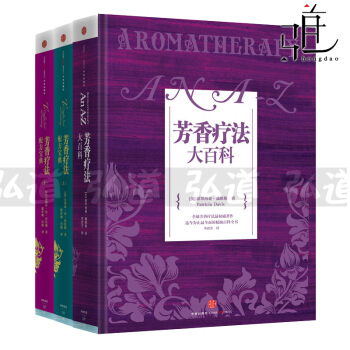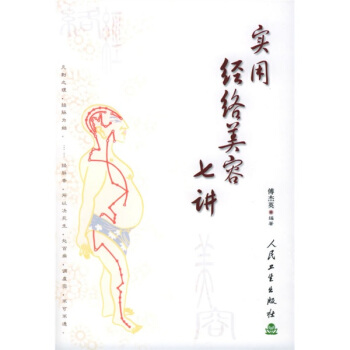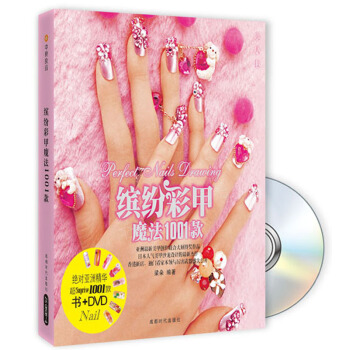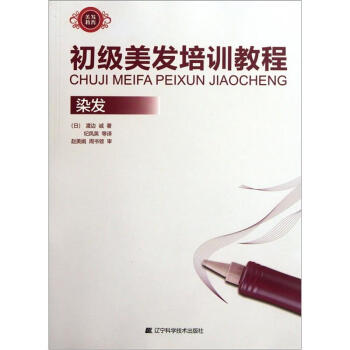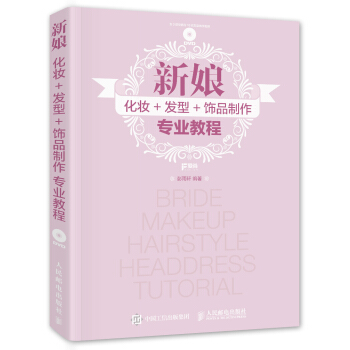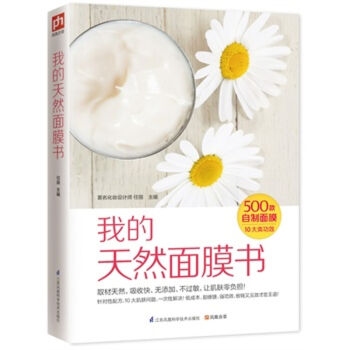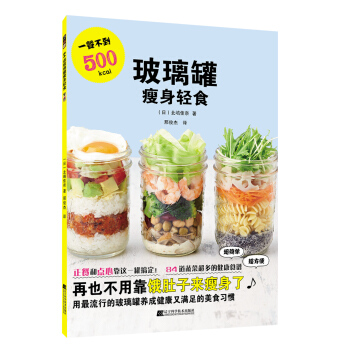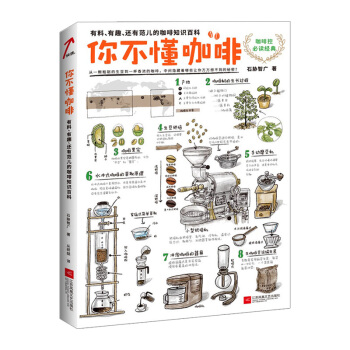

具体描述
书名:你不懂咖啡
定价:32.80元
作者:[日] 石胁智广
出版社:新星出版社
出版日期:2014年11月
页码:148页
装帧:平装
开本:32
ISBN:9787539975276
咖啡控必读经典!
有料、有趣、还有范儿的咖啡知识百科。
从一颗粗砺的生豆到一杯香浓的咖啡,中间隐藏着哪些让人万万想不到的秘密?“日本咖啡协会会长奖”得主石胁智广化身咖啡世界里的科学怪人,带你穿过咖啡的表面,为你一点点抽丝剥茧、娓娓道来。
常年位踞日、韩、中国台湾地区咖啡类书榜,中国大陆版权引进!
本书文字理性、专注又不失风趣,搭配插画大师为其量身定制的逾百幅超萌手绘图,适合伴着一杯咖啡细细品读。
diyi章了解咖啡的常识
Q1咖啡豆是豆子吗?咖啡到底是什么样的植物呢?
Q2咖啡树的鼻祖是什么?它是以什么样的方式普及的?
Q3咖啡树是如何生长和结果的?
Q4哪些国家和地区种植咖啡?
Q5咖啡的果实和种子是什么样的?
Q6要经过哪些程序,咖啡果实才能变成一杯真正的咖啡?
【来杯咖啡休息一下】全世界每天喝掉多少咖啡?各地的喝法不一样吗?
第二章了解咖啡的成分
Q7生咖啡豆是由哪些成分构成的呢?
Q8咖啡因对身体有害吗?深度烘焙咖啡豆咖啡因会减少吗?
Q9一杯咖啡中含多少咖啡因?含量比煎茶和红茶多吗?
Q10不含咖啡因的咖啡是怎么做成的?
Q11咖啡中的苦味是什么?
Q12咖啡中的酸味是什么?
Q13咖啡果实越成熟,咖啡豆真的会越甜吗?
Q14经过烘焙的咖啡豆,为什么会变成茶色?
Q15烘焙生咖啡豆时会有香味出来,这是为什么呢?
Q16咖啡中含有的绿原酸是什么?
Q17咖啡的味道会随时间变化吗?该如何保存原味?
Q18咖啡豆放久了会有哪些变化?
Q19用矿泉水冲泡的咖啡更好喝吗?
【来杯咖啡休息一下】所谓的遮荫树指的是什么?
第三章如何冲泡出美味的咖啡——咖啡的选购、萃取、研磨、保存
选购方式
Q20咖啡豆和咖啡粉,买哪一种更好呢?
Q21购买咖啡时,选择店铺的关键是什么?
Q22调制咖啡的器具都有哪些?
萃取方式
Q23如何萃取咖啡的成分?萃取的原理是什么?
Q24咖啡会因为冲泡方法的不同,味道也不同吗?
Q25用滤纸滴漏式的方法冲泡咖啡,要注意什么?
Q26咖啡沥干架有几种类型?各自有什么特点呢?
Q27用哪种滴漏式专用水壶好?为什么要按照“の”的样子倒水?
Q28为什么倒入水后咖啡粉会膨胀?如果没有膨胀,是因为咖啡粉不新鲜吗?
Q29如何试用滤纸滴漏式冲泡出口味稳定的咖啡?
Q30法兰绒滴漏式有什么特点?冲泡诀窍是什么?
Q31法式压力壶的咖啡萃取原理和冲泡诀窍是什么?
Q32虹吸式咖啡壶的萃取方法和冲泡诀窍是什么?
Q33怎么正确使用咖啡机?
Q34清澈透明的咖啡代表味道好吗?
Q35意大利浓咖啡的萃取原理是什么?
Q36在家里也可以冲调出专业的意大利浓咖啡吗?
Q37水冲式咖啡的萃取原理是什么?
Q38冰咖啡怎么做才好喝?
研磨方式
Q39为什么要研磨咖啡豆?怎么区别咖啡粉颗粒大小的种类和使用?
Q40研磨咖啡豆有什么技巧?
Q41咖啡磨都有哪些种类呢?
Q42轧辊式咖啡磨的特点和使用诀窍是什么?
Q43平面刀片式咖啡磨的特点和使用诀窍是什么?
Q44锥形刀片式咖啡磨的特点和使用诀窍是什么?
Q45桨叶式咖啡磨的特点和使用诀窍是什么?
Q46我该买哪一种类型的咖啡磨?
保存方式
Q47怎样才能保存好咖啡?
【来杯咖啡休息一下】所谓的咖啡产业的可持续性是什么呢?
第四章了解咖啡的加工——生豆的处理、烘培、混合、包装
生豆的处理方式
Q48水分越多的生豆,新鲜度越高吗?颜色越绿的生豆,新鲜度越高吗?
Q49咖啡生豆有的色泽亮丽,有的色泽暗淡,对味道有影响吗?
Q50所谓新谷期、陈谷期的豆子是怎样的?
Q51生咖啡豆真的需要清洗吗?
Q52生咖啡豆能够长期保存吗?保存的诀窍是什么?
Q53哪里可以买到生咖啡豆?购买时要注意什么?
烘焙
Q54咖啡从来都是烘焙后饮用的吗?聊一聊咖啡豆的烘焙史吧。
Q55咖啡豆有哪些烘焙程度?烘焙程度不同会让味道产生怎样的变化?
Q56烘焙机是什么样的机器?
Q57烘焙机有几种类型?各自的构造是什么样的?
Q58豆子在烘焙机里是怎么加热的?
Q59烘焙中的豆子会发生什么变化?一次爆、二次爆指的是什么?
Q60烘焙咖啡豆有哪些注意要点?
Q61烘焙机的热源有哪些种类?各自的特点是什么?
Q62炭火烘焙的方法与特点是什么?
Q63怎样选择烘焙机?
Q64让烘焙水平保持稳定的技巧是什么?
Q65产地不同,烘焙时豆子着色的方法也不同吗?
Q66为什么烘焙过的豆子表面会有油脂?
Q67为什么烘焙过的豆子表面有褶皱?
Q68家庭式的烘焙方法与诀窍是什么?
混合
Q69为什么有人会把不同种类的咖啡豆混合到一起?
Q70我对混合方法很困惑,“烘焙前混合”与“烘焙后混合”各自的特点是什么呢?
Q71混合式咖啡用“烘焙后混合”的方法制作,味道更香浓吗?
Q72混合式咖啡的命名规则是什么?
包装
Q73咖啡的食用期限是怎么规定的?
Q74咖啡有哪些包装方法?各自的特点是什么?
Q75什么材质zui适合包装咖啡?
Q76将刚刚烘焙好的咖啡豆直接密封,为什么袋子会胀得鼓鼓的?
【来杯咖啡休息一下】所谓的“精品咖啡”与“优质咖啡”指的是什么?
第五章想要了解更多咖啡知识——栽培、精选、流通、品种
Q77栽培咖啡的时候,能够使用农药吗?
Q78有机咖啡的评判标准是什么?它一定更好喝吗?
Q79咖啡果是怎么变成咖啡豆的?
Q80无论是谁都能够从事咖啡的生产吗?
Q81咖啡的价格是如何制定的?
Q82生咖啡豆是怎么运输的?
Q83进口的生咖啡豆中会掺杂劣质豆和异物吗?
Q84阿拉比卡种里包含哪些品种?
Q85卡内弗拉种里包含哪些品种?
Q86所谓咖啡的“杂交”指的是什么呢?
Q87咖啡还是传统品种的味道更好吧?
咖啡豆是豆子吗?咖啡到底是什么样的植物呢?
咖啡豆是将咖啡树果实中的种子烘焙而得的。
咖啡树隶属于被子植物门双子叶植物纲茜草目茜草科中的咖啡属。而咖啡属的树种约有70多种,其中主要用于商业用途的只有阿拉比卡(Arabica)和卡内弗拉(Canephora)两种。即使是这两种中的卡内弗拉种(Canephora),很多人也不是很熟悉。卡内弗拉种一般被人称之为罗布斯塔种(Robusta),其实,罗布斯塔种仅仅是卡内弗拉种中的一个分支,因为广为人知,所以罗布斯塔种渐渐成为了卡内弗拉种的代名词。
阿拉比卡种占目前咖啡产值的65%,有第皮卡(Typica)、波旁(Bourbon)等众多品种。虽然此品种拥有广受好评的味道,但是却也有易染病害的弱点。摩卡(Moca)、乞力马扎罗(Kilimajaro)、蓝山等都是消费者非常喜爱的阿拉比卡种咖啡中的品种。(参照Q72)
卡内弗拉种占目前咖啡产值中的35%,它的特点是有独特的大麦茶香和比较重的苦味,同时又有较强的抗病性。在1900年阿拉比卡种遭受了严重病害时,卡内弗拉种得到了广泛的普及。
除了以上两大品种外,还有利比里卡种(Liberica)等产地在亚洲和西非的品种,这些仅占目前咖啡产值中的1%—2%。
剩下的60多种咖啡树就完全没有商业用途了吗?对于这一点,现阶段我们还不能给出一个肯定的答复。近年来,由于各种生物技术突飞猛进的发展,使我们相信在不远的将来,其他品种的咖啡树也能够有更多的商业用途。
……
爱喝咖啡的你,真的“懂”咖啡吗?
生咖啡豆真的需要清洗吗?将刚刚烘焙好的咖啡豆直接密封,为什么袋子会胀得鼓鼓的?萃取时间长短如何影响咖啡的味道?用矿泉水冲泡的咖啡更好喝吗?????
一杯小小的咖啡,其实隐藏着许多让你万万想不到的秘密!本书一反同类书“知其然不知其所以然”的态度,化身理性、专注又不失风趣的科学怪人,带你穿过咖啡的表面,去探究隐匿在现象背后的成因,品咂工序细节里的趣味,在异彩纷呈的咖啡世界里为你精准导航,从产地品种的“冷知识”、烘焙萃取的“微原理”到各类器具的私人使用诀窍,甚至连小小的包装袋也一点点抽丝剥茧、娓娓道来,是一本真正有料、有趣还有范儿的咖啡知识百科。
翻开本书,细细品读,你将更加懂得咖啡的乐趣与美好。
石胁智广——
东京大学博士,日本“咖啡鉴定委员会”讲师,“全日本咖啡协会会长奖”得主,一个将工作与嗜好完美结合的咖啡狂人。
他于1999年进入关西咖啡烘焙联盟公司,先后负责过咖啡的制造工序、品质管理和研究开发等工作。自2001年起,他开始在全世界各咖啡产地游历考察,从事从栽培到萃取的全方位咖啡研究工作,并出版多本与咖啡有关的畅销著作,包括《咖啡师鉴定教科书》等。本书自面市以来,常年位踞日、韩、中国台湾地区咖啡类书榜,被誉为“咖啡控必读经典”!
用户评价
La verdad es que el mundo del café me resulta un misterio fascinante y, a la vez, un poco intimidante. Cada vez que entro en una cafetería y veo la variedad de opciones, desde los granos exóticos hasta las complejas máquinas de espresso, me siento un poco abrumado. El título "你不懂咖啡" (You Don't Understand Coffee) de 【中信书店】 (CITIC Press) capturó mi atención de inmediato porque se alinea perfectamente con mi propia percepción. A menudo siento que estoy simplemente "tomando café" sin realmente comprender lo que hay detrás de cada taza. Me gustaría que este libro fuera una puerta de entrada para entender las bases: ¿de dónde vienen los granos? ¿Qué significan las diferentes torrefacciones? ¿Cómo influye el método de preparación en el sabor final? No busco convertirme en un barista profesional de la noche a la mañana, sino adquirir un conocimiento más profundo que me permita apreciar mejor la bebida, quizás hasta identificar algunas notas de sabor o aroma que ahora se me escapan. Espero que el libro sea didáctico, con explicaciones claras y ejemplos prácticos que hagan el aprendizaje ameno y accesible para alguien que, como yo, parte de un nivel bastante básico. La idea de que "no lo entiendo" me genera una expectativa de descubrimiento y aprendizaje progresivo, donde cada capítulo me revele una nueva faceta de este universo tan rico.
评分This book, "你不懂咖啡" (You Don't Understand Coffee) by 【中信书店】 (CITIC Press), has piqued my interest because I've reached a point where my coffee consumption feels a bit… uninspired. I’m tired of the same old routine, the same predictable taste. While I’m not entirely ignorant about coffee, I certainly wouldn't call myself knowledgeable. I understand the basic concept of espresso and drip coffee, but anything beyond that feels like a foreign language. I’m hoping this book acts as a friendly guide, someone who can gently lead me through the labyrinth of coffee appreciation. I want to learn about the journey from bean to cup, understanding how factors like origin, processing, and roasting contribute to the final flavor profile. What makes an Ethiopian coffee taste different from a Colombian one? What exactly is "third wave coffee" and why is everyone talking about it? I'm eager to delve into the nuances of different brewing methods and, more importantly, to develop my palate to actually discern and appreciate those subtle differences. My ideal outcome from reading this book would be to feel more empowered when I’m at a café, to be able to make informed choices, and perhaps even to start experimenting with different beans and brewing techniques at home. It’s about elevating a daily ritual into something more engaging and enjoyable.
评分My journey with coffee has always been more about convenience than connoisseurship. I've been a regular at coffee shops for years, ordering the same things, never really questioning the "why" behind it all. However, lately, I've been noticing a growing trend of "specialty coffee" and people talking about tasting notes, roast profiles, and brewing methods with such passion. It's made me feel a little out of the loop, to be honest. The title "你不懂咖啡" (You Don't Understand Coffee) really resonated with that feeling. It's a bold statement, almost a challenge, and I think that's what drew me in. I'm curious to see if this book can help me bridge that knowledge gap. I'm hoping for a guide that can break down complex concepts into simple, digestible pieces. I don't want to be overwhelmed with jargon, but rather be gently introduced to the different types of beans, how they are processed, and what impact that has on the final cup. Understanding the various brewing methods, like pour-over or French press, and why they yield different results is also something I'm keen to explore. Ultimately, I'd love to walk away from this book with the confidence to order something other than my usual, to engage in conversations about coffee without feeling lost, and perhaps even to experiment with brewing at home. It feels like the kind of book that could transform a daily habit into a genuine hobby.
评分En mi opinión, el título "你不懂咖啡" (You Don't Understand Coffee) de 【中信书店】 (CITIC Press) es un gancho perfecto para alguien como yo, que bebe café a diario pero se siente un poco perdido en la jerga y las complejidades que lo rodean. Soy de esas personas que entran a una cafetería y piden "un café solo" o "un café con leche" sin pensar mucho más allá. Me gustaría que este libro me proporcionara las herramientas para empezar a entender por qué hay tanta pasión y dedicación en torno a esta bebida. Tengo curiosidad por saber qué hay detrás de las diferentes variedades de granos, cómo se cultivan y cosechan, y qué impacto tiene el proceso de tostado en el sabor final. Me imagino que el libro podría explicar de manera sencilla las diferencias entre, por ejemplo, un espresso, un americano, un capuchino, y quizás incluso introducirme en el mundo de la preparación manual, como el filtrado o la prensa francesa. Lo que más me atrae es la promesa de descifrar ese lenguaje de "notas frutales", "cítricos" o "chocolate" que tanto se menciona en las descripciones de café, pero que yo, honestamente, aún no logro percibir. Mi objetivo al leerlo sería poder tener una conversación más informada sobre el café, disfrutar de una taza con una apreciación más profunda y, quién sabe, quizás incluso animarme a probar a preparar mi propio café en casa con un poco más de conocimiento.
评分我最近刚好在寻觅一本关于咖啡的书, estaba un poco abrumado por la cantidad de opciones, pero cuando vi este título, "你不懂咖啡" (You Don't Understand Coffee) de 【中信书店】 (CITIC Press), me llamó la atención de inmediato. No soy un experto en café, de hecho, a menudo me siento como si me faltara el conocimiento básico para apreciar realmente una buena taza. Mi experiencia se limita a pedir un latte o un americano, sin mucha idea de las diferencias entre los granos, los métodos de preparación o incluso el origen. Me imagino que este libro podría ser justo lo que necesito para empezar a desmitificar el mundo del café, para entender por qué hay tantas variaciones, qué hace que un café sea "especial" y cómo empezar a desarrollar mi propio paladar. La idea de que "no entiendo" me atrae porque sugiere que el libro está dirigido a principiantes como yo, que buscamos una introducción accesible y quizás hasta un poco divertida al tema. Espero que no sea excesivamente técnico o académico, sino que me guíe de forma amena a través de los aspectos fundamentales, desde la historia del café hasta las técnicas más comunes. Me intriga mucho la posibilidad de aprender a apreciar los matices de sabor y aroma que se mencionan tan a menudo pero que yo, hasta ahora, no he logrado identificar. Si este libro logra abrirme los ojos (y la boca) al mundo del café de una manera que me resulte comprensible y motivadora, creo que será una compra muy valiosa para mis mañanas y tardes.
相关图书
本站所有内容均为互联网搜索引擎提供的公开搜索信息,本站不存储任何数据与内容,任何内容与数据均与本站无关,如有需要请联系相关搜索引擎包括但不限于百度,google,bing,sogou 等
© 2026 book.coffeedeals.club All Rights Reserved. 静流书站 版权所有


